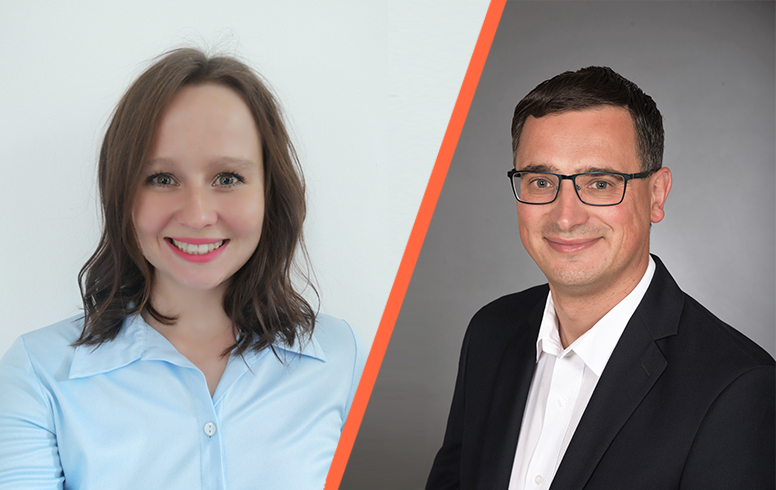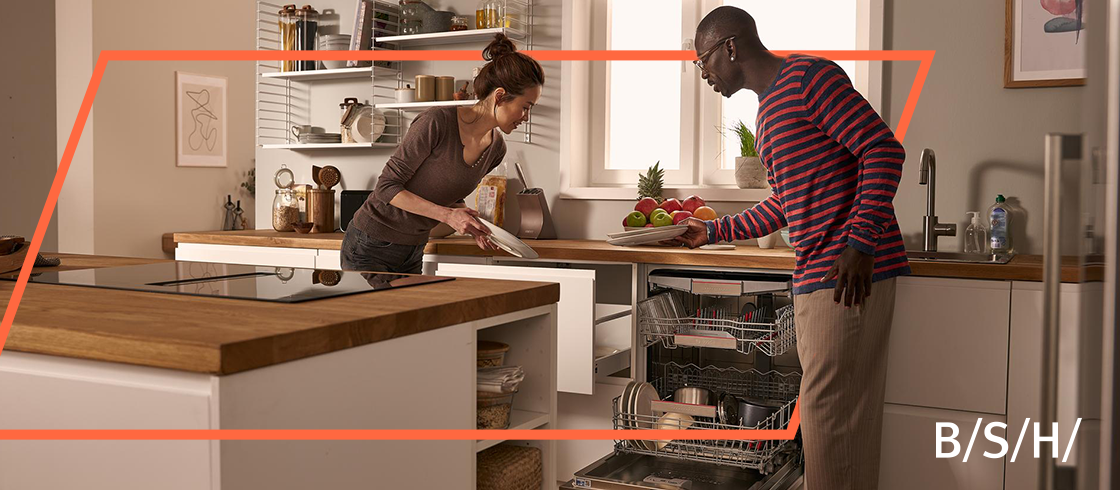Smart Machines: How Dishwashers Learn From Consumers
Reading time for this article: 4 minutes
The modern home is connected and smart. If you want to be smart, you have to learn first. Now, this is true not only for schoolchildren but also for dishwashers from BSH. The new self-learning appliances adapt to the personal wishes and needs of our consumers. Whether faster, cleaner or drier – the dishwashers learn step by step what individual consumers need. Project Lead Steffen Fritz and Operations-Manager Christine Hasselmann explain why.
Smart devices have accompanied our everyday lives at home for many years. From self-learning thermostats that remember residents' favorite temperatures to smart surveillance systems that recognize unfamiliar faces at the door. Why does the world need a self-learning dishwasher?
Steffen: Through Home Connect anonymized data from our connected appliances, we learned that many consumers most often run their appliances in automatic or eco mode, even though a variety of special programs are now available. This suggests that consumers are not even aware of these programs and their benefits, or do not want to bother with the right selection. To make it even easier to use and enable users to take advantage of all the program benefits, we are now sending the dishwasher to school, so to speak. After the wash cycle, users provide feedback on the wash result and the dishwasher suggests the appropriate program setting. Hence, the dishwasher learns with each piece of feedback.
How does that work in practice?
Christine: The app regularly asks users after the wash cycle how satisfied they are with cleaning, drying and duration. And the users rate the result with the help of smileys. The dishwasher then selects the optimized settings for the next cycle from a large number of possible program constellations and then asks for feedback again – until the consumers are satisfied.
What happens if the dishwasher can no longer improve anything?
Christine: If it really happens that the dishwasher has learned its lesson and can no longer improve anything, the consumers come back into play. The Home Connect app offers them lots of helpful tips and tricks: Sometimes it helps to simply change the amount or position of the load in the dishwasher or to optimize the amount of salt and rinse aid. At the same time, of course, our team will continue to learn from anonymized user data in order to offer more programs for download in the future – tailored to our consumers' individual needs.

How environmentally friendly are the new dishwashers?
Steffen: Eco-friendliness has always been a focus of all our home appliances! With our self-learning dishwashers, for example, the app suggests a particularly economical but somewhat slower alternative in addition to the recommended, optimized program. The performance remains at roughly the same level. For even more transparency, the appliance also indicates the maximum temperature, the water consumption, and the energy consumption of the suggested program. This is the first time we've seen these consumption values displayed transparently. I really hope that consumers will take advantage of this more environmentally conscious alternative and that we can inspire them to live more sustainably!
What technical challenges did you overcome during the implementation?
Christine: One of the biggest challenges was to present the technical parameters in a way that users could easily understand them. That's how we came up with the smiley rating idea, for example, which was also very well received by our product testers. Incidentally, we worked with more than 1,500 independent testers during the project to ensure that the new functions were consistently geared to the needs of our consumers. From qualitative home visits and discussion groups to quantitative studies in various countries – our consumers were involved right from the start.
“Thus, we always felt like we were developing a really great solution that added value for our consumers”, underlines Operations-Manager Christine Hasselmann.
What did you like most about this innovation project?
Christine: I particularly liked the close and personal collaboration with the testers. Because fortunately, the project launch was already in 2018 – even before Corona. The interaction and feedback from the testers helped us immensely in aligning our solution with their needs.
Steffen: The close cross-functional collaboration and regular exchange were a highlight for me. At the start of the project, this was the first purely digital project for me in the dishwashing team and therefore new territory. Although the close cooperation took some getting used to at first, we got along well and it worked out great.
What's the next step?
Steffen: Currently, the self-learning dishwasher is only available in Central Europe, but we are of course already planning the further rollout. In addition, we are working on some promising further developments. What exactly that will be, however, is still top secret!




